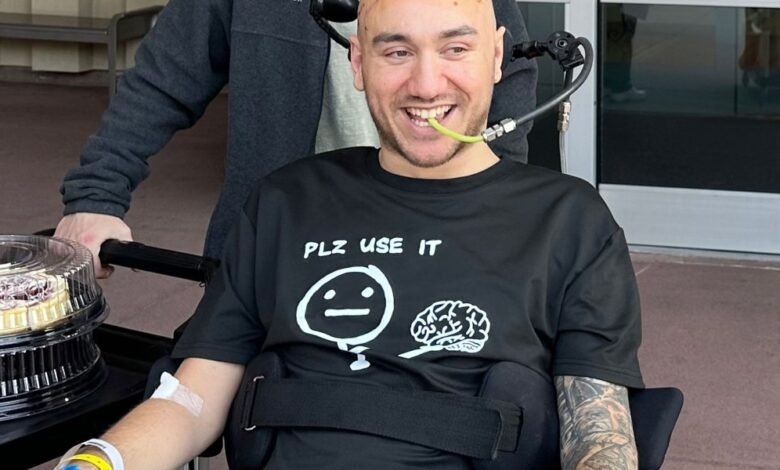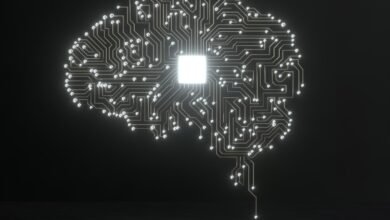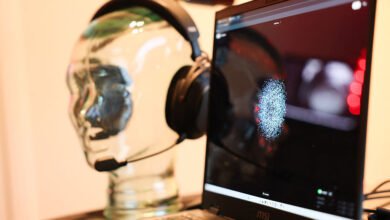Neuralink Patient Reveals Life-Changing Transformation from Brain Implant

▼ Summary
– Noland Arbaugh became the first human recipient of Neuralink’s brain chip in January 2024, following a swimming accident that left him paralyzed from the shoulders down.
– The implant allows him to control digital devices with his mind, enabling activities like gaming, using a computer, and operating household appliances without physical movement.
– Neuralink’s device features over 1,000 electrodes for high connectivity, is wireless and battery-powered, and targets the motor cortex for movement control.
– Arbaugh’s participation has brought him public attention and scrutiny, but he emphasizes the transformative impact on his autonomy, purpose, and daily life.
– Neuralink is expanding trials globally, focusing on restoring functions like sight and mobility, while facing criticism over its methods and handling of animal testing.
Noland Arbaugh’s life took a dramatic turn in early 2024 when he became the first person to receive Neuralink’s brain-computer interface, an experimental implant that has restored his ability to interact with the world despite quadriplegia. His journey from isolation to independence illustrates the profound potential of neurotechnology to reshape lives affected by spinal cord injury and paralysis.
During a Neuralink company meeting in February of that year, Arbaugh introduced himself to the world from his wheelchair, greeted by a room full of applauding employees. A former college student left paralyzed from the shoulders down after a 2016 swimming accident, he now controls digital devices using only his thoughts. The implant, embedded in his motor cortex during a two-hour surgery at Barrow Neurological Institute, connects over a thousand electrodes to his brain neurons. This allows him to play video games, operate household appliances, and navigate a computer, all without physical movement.
Remarkably, on his very first day using the system, Arbaugh broke the 2017 world record for speed and precision in BCI cursor control. He describes the learning process as intuitive, almost effortless. As the inaugural participant in Neuralink’s human trials, he joined a small group of roughly 80 people worldwide who have received similar implants. What sets Neuralink apart is its high electrode count, wireless design, and placement in the brain’s movement center, a more invasive but potentially more powerful approach than many competitors.
Living as a pioneering patient comes with unique challenges and visibility. Since going public, Arbaugh has become a sought-after speaker, though this attention has also brought unwelcome intrusions, including a SWAT team response triggered by a false report. Despite these pressures, he remains an enthusiastic advocate for the technology, emphasizing how it has given him back a sense of purpose. Before the implant, he spent years feeling disconnected and inactive. Now, he’s enrolled in community college, studying neuroscience, and building a professional speaking career.
Neuralink’s device requires recharging approximately every five hours, initially limiting use during charging periods, though later updates resolved this. The company even designed special hats with integrated wireless chargers to make powering the implant more convenient. Arbaugh emphasizes that the team has been transparent and supportive, never restricting what he can share publicly. He consciously withholds certain technical setbacks, like an early issue with electrode retraction, to avoid undermining confidence in the technology he believes in deeply.
The study has since expanded to include eight more participants across the U.S., Canada, the UK, and the UAE, all living with paralysis or ALS. Neuralink’s broader vision includes developing sight restoration technology and robotic limbs that users could control mentally. Elon Musk has emphasized a cautious, deliberate approach to human trials, despite the company’s ambitious goals.
Arbaugh reflects on his decision to participate with characteristic clarity. He never doubted the device would work, motivated by the chance to contribute to medical progress even if he personally didn’t benefit. His parents supported his choice, though the consent forms outlining potential risks were difficult for them to read. Today, he sees himself as both a regular person and a symbol of technological progress, a “cyborg” in the most practical sense.
His story underscores a broader shift in how disability and recovery are perceived. Where he once imagined cures coming from pharmaceuticals or biologics, he now believes technology will lead the way. For Arbaugh, the implant isn’t just a medical device, it’s a gateway to education, connection, and a future he hadn’t dared to envision. As he plays Mario Kart with his father or plans his next business venture, he embodies a new era of possibility, driven by innovation and human courage.
(Source: Fortune)



